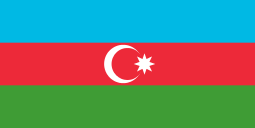
Government procurement remains a weak link in Azerbaijan’s public financial management. The state procurement system lacks transparency and efficiency, the legislative framework leaves space for collusive and corrupt practices and public oversight over the procurement system is not ensured by the law.
The TPPR assessment of the country’s PPL reveals key structural shortcomings, but also tentative steps toward reform. Azerbaijan received 49% of the total score, which makes it the least compliant country with the TPPR standard among the target states. Even though the legislation has several structural problems, according to the TPPR assessment most prominent issues arise during the post-tendering phase. In terms of values, Azerbaijan has the most drawbacks in transparency of the system.
Azerbaijan’s regulatory environment is not generally conducive to conducting fair and competitive procurement. Information on companies’ ownership is not publicly available and public officials are not required to disclose their financial assets. This makes it very difficult to identify potential conflicts of interest that may influence the outcome of tenders.
PPL does not adequately provide for accountability and integrity of the procurement process. Tenders are off-limits to the public, the civil society organizations do not have an oversight role in the tender process. The information on tender results that is publicly disclosed is inadequate to gauge the efficiency and integrity of the bidding process. PPL does not ensure access to tender-related documents, such as - tender candidate applications, bids offered by tender participants, decisions of tender commissions, contract information etc.
Another problem identified by the assessment is that publishing justification for using a non-competitive procedure is not mandatory by the PPL. This may result in lack of public oversight on the necessity of non-competitive procedures. The annual audit reports of Azerbaijan’s chief auditing institution - Chamber of Accounts indicates heavy reliance on single source procurement, especially, in the construction sector. For example, in 2015, the audit of over 3 billion AZN (about 1.7 billion USD) funds spent on public procurement indicated that single source procurement accounted for 77,8% of the expenditures, whereas open tenders involved 14%.The findings of the reports also attest to the adverse impact of substandard accountability and oversight mechanisms on the integrity of public procurement.
The declining oil revenues, subsequent currency devaluations and the ongoing recession has brought home the urgency of the need to spend public funds more efficiently in the post-oil boom period. In the light of the belt-tightening measures taken in recent years, the most noteworthy change vis-a-vis public procurement has been the disbanding of State Procurment Agency, the chief regulatory body in January 2016. The Agency’s responsibilities were transferred to State Service for Antimonopoly Policy and Protection of Consumer Rights under Ministry of Economy. Moreover, the newly adopted law on non-cash payments require contractors to spend the public procurement related funds using non-cash methods of payment. It is too early to predict the wider ramifications of these changes, but the business as usual approach may prove to be too costly to maintain against the backdrop of reduced public revenues.
Public Procurement Legislation available at the following – link.
Public Procurement Portal of Azerbaijan – link.